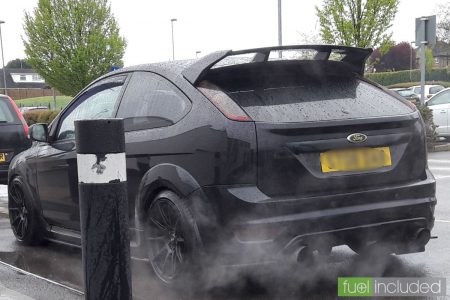Safety rating organisation Euro NCAP has launched a new green car assessment programme called Green NCAP in conjunction with European Governments, motoring clubs and other organisations.
It aims to promote cars that are less polluting and more fuel- and energy-efficient by providing consumers with independent information about cars’ performance in tests that go well beyond legislative requirements to uncover the differences between manufacturers’ emissions-control strategies.
With members and independent test laboratories in eight European countries, Green NCAP aims to motivate car manufacturers to develop cars that make the most efficient use of the energy they use and to minimise the pollutant and greenhouse gases they emit.
For now, Green NCAP considers only the energy used while driving (‘tank to wheel’), but in time, well-to-wheel and ultimately the whole life-cycle will be considered, including the energy used to produce the vehicle, the energy it consumes in its lifetime and the energy needed to scrap and recycle its parts.
Pierre Castaing, chairman of Euro NCAP, said,
“For years, there has been a mismatch between the way cars perform in regulatory tests and how they perform on the road. Consumers often don’t get the fuel economy officially claimed for their vehicles and end up paying for the difference in fuel. Now, legislation is tightening-up, but consumer testing can complement it and go a step further: it can really encourage car manufacturers to beat their competitors by innovating in the field of energy efficiency and emission reduction. We’re confident that they will respond to the challenge, to the benefit of car-buyers and the environment.”
In Green NCAP’s first round of tests, twelve cars have been rated: the Hyundai Ioniq and BMW i3, both electric vehicles, achieve a maximum five-star rating; the VW up! GTI gets a creditable four stars; BMW’s X1 2.0d and the Mercedes-Benz A200 are both awarded three stars; the Ford Fiesta 1.0 EcoBoost is rated as two stars in its latest guise, and a one-star rating is given to the Audi A7 50 TDI, the Volvo XC40 T5 and the Subaru Outback 2.5. Three cars – the VW Golf 1.6TDI, the FIAT Panda 1.0 and the previous level Ford Fiesta 1.0 EcoBoost – get zero-star ratings. All three of the zero-star cars are approved to Euro 6b emissions standards, still valid for models introduced before September 2017. However, from September 2019, all cars will have to meet the tougher standards of Euro 6d-temp and updated versions of these cars will be rated in the next round of tests.
Read more: Fleet News

